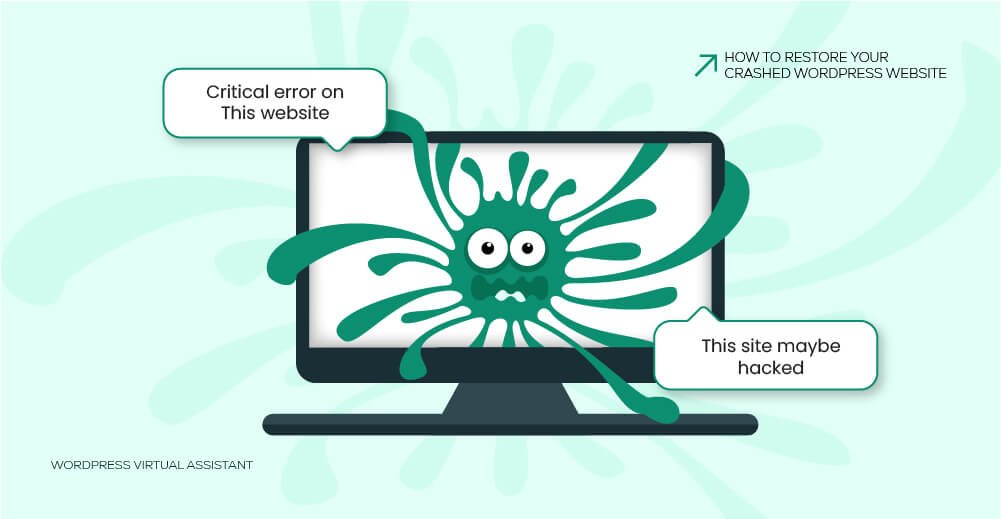If you’re struggling with a slow WordPress site, chances are your cache setup needs a review. Over the years, we’ve seen that implementing the best WordPress caching plugins can significantly enhance site speed, user experience, search rankings, and server resources.
Caching is a performance-enhancing technique that stores key website data like HTML, images, and scripts so it doesn’t have to be regenerated every time a visitor loads a page. Instead, the site shows a saved version, which reduces loading time and puts less pressure on your server. That’s why caching is one of the first things we look at in our performance checklist when auditing a website.
After 10+ years of working with dozens of the best WordPress caching plugins across projects, we’re presenting the best plugins based on performance, use cases, compatibility with modern themes and builders, and affordability. Don’t take this guide as another roundup—we’re sharing what’s worked for us through hands-on experience.
Why Caching Matters for Your WordPress Site
When someone visits your site for the first time, their browser or your server saves a version of the page. The next time that page is requested, the saved version (called the “cache”) is served instead of generating it all over again. This reduces server load, speeds up page delivery, and improves the overall experience for your visitors.

Example: Your logo loads faster the second time someone visits your site.
This means:
- Significantly Faster Load Times: In performance testing using GTmetrix, a WordPress site without caching loaded in 4.8 seconds, while the same site with full-page caching enabled loaded in just 1.2 seconds, a nearly 75% reduction in load time.
- Better Core Web Vitals: Caching improves key metrics like First Contentful Paint (FCP) and Largest Contentful Paint (LCP), which are critical for SEO and user experience.
- Reduced Server Load: By offloading repetitive processing tasks, caching minimizes CPU usage and database queries, helping your site stay responsive even during peak traffic.
- Improved Scalability: Cached content allows your site to handle sudden traffic spikes, like product launches or marketing campaigns, without slowing down or crashing.
- SEO and User Experience Gains: Google considers page speed a ranking factor. Faster load times mean better rankings, lower bounce rates, and improved user satisfaction.
As a reference, we tested one cache plugin on a website and saw decent improvements—it made the site load faster, reduced the page size, and lowered the number of HTTP requests.

NOTE: The test was conducted using WP Rocket on a live website. All other speed optimization techniques have not yet been implemented.
Top 7 WordPress Cache Plugins: Free & Paid
| Plugin | Best For | Price | |
|---|---|---|---|
| WP Rocket | Overall performance + features (all-in-one premium solution) | From $59/year | Read More |
| LiteSpeed Cache | LiteSpeed server users (built-in optimization tools) | Free/Paid | Read More |
| W3 Total Cache | Advanced users who want full control over caching & CDN settings | Free/Paid | Read More |
| WP Fastest Cache | Balance of speed + simplicity (minimal setup with good results) | Free/Paid | Read More |
| WP Super Cache | Beginners using shared hosting (simple setup, good performance) | Free | Read More |
| WP-Optimize | Database cleaning + page caching (lightweight all-around tool) | Free/Paid | Read More |
| Sucuri | Security-focused caching (includes firewall & CDN level caching) | Paid | Read More |
How We Test & Review Plugins
With so many WordPress caching plugins, it’s easy to get overwhelmed. That’s why we don’t just rely on plugin descriptions or user reviews. We take a hands-on approach to see what works.
Here’s our process:
- We test on real websites, not just demo setups: Every plugin we review is installed on different WordPress websites, from small blogs to high-traffic business sites, so we can see how they perform in real-world scenarios.
- We analyze what improves speed: Use GTmetrix and PageSpeed Insights to measure each plugin’s impact on load time, server response, and mobile performance. We also check its ease of use, customization, and compatibility with themes and other plugins.
- We consider plugin maintenance and updates: Give a thumbs-up to plugins that are regularly updated, well-supported by developers, and work smoothly with the latest version of WordPress.
- We bring value in comparison: Don’t include plugins that overlap for features and the ultimate value they provide under the same use cases.
Our team of WordPress experts carefully picks and tests each tool based on real experience. With over 10 years in WordPress, we share practical insights and data to help you improve your site’s performance. Learn more about us.
1. WP Rocket

Price: Starting from $59/year for one site.
Not only cache, WP Rocket is the overall best WordPress speed optimization plugin that caters to almost everything to speed up your website.
We love that WP Rocket isn’t just powerful—it’s also beginner-friendly. The setup is simple, with an easy-to-use interface that doesn’t overwhelm you with complicated settings. In fact, with just a few clicks, your cache is ready to go.

Once configured, it automatically crawls and optimizes your website performance for best practices, such as page cache, cache preloading, browser cache, mobile cache, cache lifespan, Gzip compression, and more.
Pros of WP Rocket:
- Easy setup with a clean dashboard, perfect even if you’re not tech-savvy.
- Offers caching, minification, lazy loading, preload, database cleanup, and more—no need for extra plugins.
- Starts improving speed immediately after you install and activate it.
- Works well with major themes, WooCommerce, and page builders like Elementor.
- Backed by a responsive team and frequent performance-focused updates.
- Easy to connect with CDN services for even faster global delivery.
Cons of WP Rocket:
- From our experience, WP Rocket doesn’t offer built-in object caching.
- It’s beginner-friendly, but some features, like delay JS may need expert help.
We love WP Rocket for its all-around performance features. It has brought dependability for years by replacing several plugins and making websites load much faster.
2. LiteSpeed Cache

Price: Free on LiteSpeed servers; requires a QUIC.cloud plan for full features elsewhere.
LiteSpeed Cache is a feature-rich caching plugin that delivers high-speed performance through server-level caching, a method known for its efficiency and low resource usage.
Unlike many alternatives, it offers premium-grade tools like image optimization, lazy loading, and JavaScript localization completely free.
We love how well it works with WordPress and WooCommerce. Thanks to its custom caching rules, it handles dynamic content like shopping carts and logged-in users smoothly.
The plugin’s user-friendly dashboard makes adjusting cache settings simple, even for beginners.

Pros of LiteSpeed Cache:
- Server-level full-page caching
- Reduces the number of PHP executions and database queries, lowering your server’s CPU and RAM usage.
- Reduces JavaScript execution time and defers non-critical scripts.
- Free image optimization with WebP.
- Supports ESI for WooCommerce.
- GZIP compression and CDN integration.
- Multisite and mobile cache support.
- Supports Cloudflare and other CDN providers, too.
Cons of LiteSpeed Cache:
- Best performance only on LiteSpeed servers
- QUIC.cloud integration can be confusing for non-techies
LiteSpeed Cache is particularly popular for websites using the LiteSpeed Web Server (but we found it working well to some extent on other servers like Apache or NGINX with some limitations).
3. W3 Total Cache

Price: Free, starting from $99 per year.
W3 Total Cache is another robust WordPress caching plugin that offers flexibility with caching and performance. It offers more than just page and browser caching—object and database caching help speed up dynamic content, making it ideal for more complex websites.
A key highlight is its integration with Google PageSpeed Insights, letting you test site speed within the dashboard.

Additional tools like CSS/JS minification, lazy loading, and WebP image conversion further enhance your site’s loading time and performance.
Pros of W3 Total Cache:
- Supports page, object, and database caching—great for high-traffic sites.
- Saves static files (like images, CSS, JS) in visitors’ browsers for quicker repeat visits.
- Helps reduce page load times, especially Time to First Byte (TTFB) and First Contentful Paint (FCP).
- Works with most major CDNs like Cloudflare, StackPath, and Amazon CloudFront.
- Automatically rewrites URLs to serve files through the CDN.
- Gives you complete control over each type of caching: page, object, browser, opcode, database, and fragments.
- Advanced file minification.
Cons of W3 Total Cache:
- Site owners who want full control over caching and performance.
- No built-in image optimization like LiteSpeed Cache.
- Occasional conflicts with themes/plugins if not correctly configured.
It’s a solid choice if you’re running a busy WordPress site and need flexibility with your caching strategy.
NOTE: You’ll need to be tech-savvy or get help from a developer to set it up safely. Configured incorrectly, the settings can confuse beginners and cause errors or conflicts.
4. WP Fastest Cache

Price: Free, $49/one-time.
WP Fastest Cache is a great free option if you want better website speed without any technical hassle. It’s easy to set up and has just enough features to improve performance. You can also upgrade later if you need more advanced tools.

One of its biggest strengths is flexibility. The cache expiration tool allows you to control how long cached files stay active. The pro version also offers CSS/JS minification and combination, CDN support, and image optimization to keep your site fast and efficient.
Plus, it supports GZIP compression to make files smaller and speed up loading.
Pros of WP Fastet Cache:
- Super-easy even a newbie can configure it.
- Without changing much, you’ll likely see an improvement in load time.
- Works well even on budget or shared hosting.
- Also supports PHP-based caching for users who can’t use Mod_Rewrite.
- Option to exclude specific pages or user roles from caching.
- Built-in support for Cloudflare and other CDNs.
Cons of WP Fastest Cache:
- Many valuable tools like image compression, mobile caching, and database cleanup are locked behind the Pro version.
- Missing out on object and fragment caching may limit performance gains on complex or WooCommerce-heavy sites.
- Lacks upfront payment clarity.
Over a million WordPress users trust WP Fastest Cache—including us. While some people have mentioned issues with support, we’ve always received quick responses when we reached out.
We recommend it for site owners on shared hosting who want an easy-to-use caching plugin with solid free features. If you need more advanced tools, you can upgrade with a one-time payment instead of a monthly subscription. However, it might not be the best option for large or complex sites like WooCommerce stores.
5. WP Super Cache

Price: Free
WP Super Cache is a free and beginner-friendly caching plugin developed by Automattic, the team behind WordPress.com. It’s widely used by blogs and small—to mid-sized websites looking to enhance website speed without spending a dime.
With two main modes—Expert and Simple—it offers flexibility for advanced users and beginners.

The Expert mode performs faster by passing PHP execution, though it requires manual .htaccess edits. The Simple mode is safer for users who prefer a hassle-free setup. Additional features like cache preloading ensure your content is ready to load instantly on the first visit.
Pros of WP Super Cache:
- Completely free and open-source
- Designed for non-technical users.
- Ideal for reducing server load and improving speed.
- Works well on shared or budget hosting where server resources are limited.
- Has a “Supercache” mode that’s very efficient for handling large numbers of visitors.
- Supports advanced caching modes (Mod_Rewrite, PHP, and legacy).
Cons of WP Super Cache:
- Lacks advanced features required for large or dynamic sites.
- Doesn’t offer built-in CDN or object caching support
We recommend WP Super Cache to WordPress beginners who want a faster solution with minimal setup for basic sites.
6. WP-Optimize

Price: Free, starting from $49/year.
We’ve found WP-Optimize to be more than just a cache plugin. Its ability to clean your database, compress images, and cache your pages makes it reliable for reducing bloat and speeding up WordPress websites. We recommend this plugin to content-heavy websites that accumulate lots of revisions and unnecessary data over time.

For us, it stands out because of its combination of caching and database optimization. It helps us clean and schedule post revisions, spam comments, trashed content, expired transients, and more, eventually helping reduce the database size. Like other plugins, it has all those page caching ingredients to improve your website’s performance.
Pros of WP-Optimize:
- All-in-One Optimization Tool (caching + database + image compression).
- Schedule Database Cleanups.
- Free version includes core features.
- One plugin instead of three separate ones.
Cons of WP-Optimize:
- Caching system is basic (not as powerful as LiteSpeed or W3 Total Cache)
- Can cause issues if database cleanups are misconfigured
WP-Optimize is a smart pick if you’re looking for lightweight optimization and maintenance. It’s ideal for sites like blogs, portfolios, or ecommerce stores that have a growing database. As said, its caching is not that powerful, but its all-in-one nature makes it a considerable choice.
7. Sucuri

Price: $9.99/month
Sucuri is primarily known as a security firewall for WordPress, but it also includes built-in caching tools that improve site speed. It’s a reliable choice for combining performance and protection in one place.
It offers site caching with a 180-minute cache duration for eCommerce or membership sites, where you can effectively manage user sessions. Blogs and news websites can use minimal caching, which refreshes every 8 minutes for more dynamic content delivery.
When updating your site, you can clear the cache with a single click for the entire site or specific files and folders. This gives you more control over what content stays cached and what gets refreshed.
Pros of Sucuri:
- Built-in security and CDN
- Supports Gzip and Brotli compression
- One-click caching and purging
- Cache by file or full site
- Real-time threat monitoring
Cons of Sucuri:
- Caching options are limited compared to others
- Premium only—no free version
We recommend Sucuri for site owners who need real-time security and performance. It’s especially helpful for websites with membership or subscription models, where efficient session and cookie management is crucial.
What’s the Best Caching Plugin for Your Site?
WP Rocket is one of the best WordPress caching plugins because it offers an all-in-one performance boost. It helps speed up your site by 70% by handling minification, managing CSS/JS files, and optimizing assets—all in one place.
If WP Rocket doesn’t fully meet your needs or you want a dedicated caching tool to use alongside it, LiteSpeed Cache or W3 Total Cache are great choices.
For a completely free option, WP Super Cache is a solid pick.
At WP Virtual, we don’t rely on generic advice. That’s why we tested over 15 caching plugins on a real website to see how well they performed. We measured each plugin’s caching ability and its impact on overall site performance.
Here’s what we got:

FAQs:
Do I need a caching plugin if my host already provides caching?
If your hosting provider offers built-in caching (like SiteGround or WP Engine), you may not need an extra caching plugin. However, some plugins offer more control and additional features like browser caching, minification, and lazy loading, which can further optimize site speed.
Can I use more than one caching plugin at the same time?
It’s not recommended. Using multiple caching plugins can cause conflicts, performance issues, or even break your site. Stick to one well-configured plugin that handles all your caching needs.
How do I test if my caching plugin is working?
Final Words
Implementing a cache policy on your WordPress site is fundamental to robust performance. Depending on your site complexity, the right cache solution can boost your site speed and overall performance by 60%.
By serving cached content, the server handles fewer requests and reduces CPU and memory usage. This technique can save you time and resources during high-traffic spikes. Caching also improves Core Web Vitals, especially Time to First Byte (TTFB), which improves mobile user experience.
By an effective cache policy we mean both implementing and clearing cache in WordPress in order to maintain seamless experience for your users.
Therefore, we recommend maintaining an optimal cache policy to stay one step ahead of your competitors!
Try our WordPress virtual assistant services and save 20+ hours a week. We handle your SEO, design, development & maintenance so you can focus on growth.







